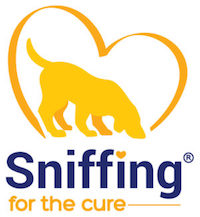Our Stanley is starting to show his gray hairs around his mouth. I can’t believe how fast time goes by. Our chocolate Lab is a senior dog!
Similar to people, older dogs have an increased incidence of age-related challenges including eye diseases. Dogs can go blind for several reasons ranging from disease to old age. Some of the reasons for blindness are cataracts, glaucoma, progressive retinal atrophy, hypertension, infection, and suddenly acquired retinal degeneration. Also, certain breeds and sexes are more susceptible to blindness than others. For example, cataracts are more common in miniature poodles, cocker spaniels, miniature schnauzers, golden retrievers, Boston terriers, and Siberian Huskies.
The health care field has focused on efforts to stop the progression of eye diseases or to prevent the damage leading to these conditions. Nutritional intervention is becoming recognized as a part of these efforts. Research studies indicate that vitamins and minerals with antioxidant functions are essential for vision’s health. Some of these supplements such as omega-3 fatty acids have anti-inflammatory properties that may ameliorate the risk for age-related eye disease.
So, what can you do to ameliorate age-related problems? You can do preventive care for your dog. Not only it is more cost effective to prevent diseases, but keeping your dog healthy can extend and improve his happy life.
Here I share a few tips on how to care for your senior dog.
🐾 Visit the veterinarian for regular checkups to keep your pup healthy. Schedule regular visits with your veterinarian. Some diseases are hidden and not apparent. Also, it is cheaper to prevent a disease than treating it. Careful observation, routine veterinary evaluation, and prompt attention to changes are essential to maintaining canine vision and comfort.
🐾 Choose the appropriate diet for your pup. Proper nutrition is also critical to your dog’s health, but before you go and spend tons of money on gourmet food, discuss with the veterinarian what is the best diet for your dog. Older dogs may require a lower calorie intake. Also, depending on your dog’s heart and kidney function, he may need a specific diet. It will vary depending on your dog’s situation.
🐾 Consider fortifying your dog’s diet. Supplements like omega-3 fatty acids can ameliorate the risk for age-related eye disease. Stanley enjoys the chewable supplements Zesty Paws Senior Eye Supplement for Dogs – Vision Bites. The bites provide the vitamins, antioxidants, and Omega-3 to promote eye health for senior dogs of any breed or size. I strongly recommend you discuss the options with your vet before starting any supplement.

If the loss of eyesight is gradual, you may not even notice until you take your dog to a new place or rearrange your furniture. Unlike humans, dogs do not rely on vision as their most important sense. Their noses and ears help them to adapt very well. If you notice any changes, it is crucial that your veterinarian evaluates your pup.





No Comments